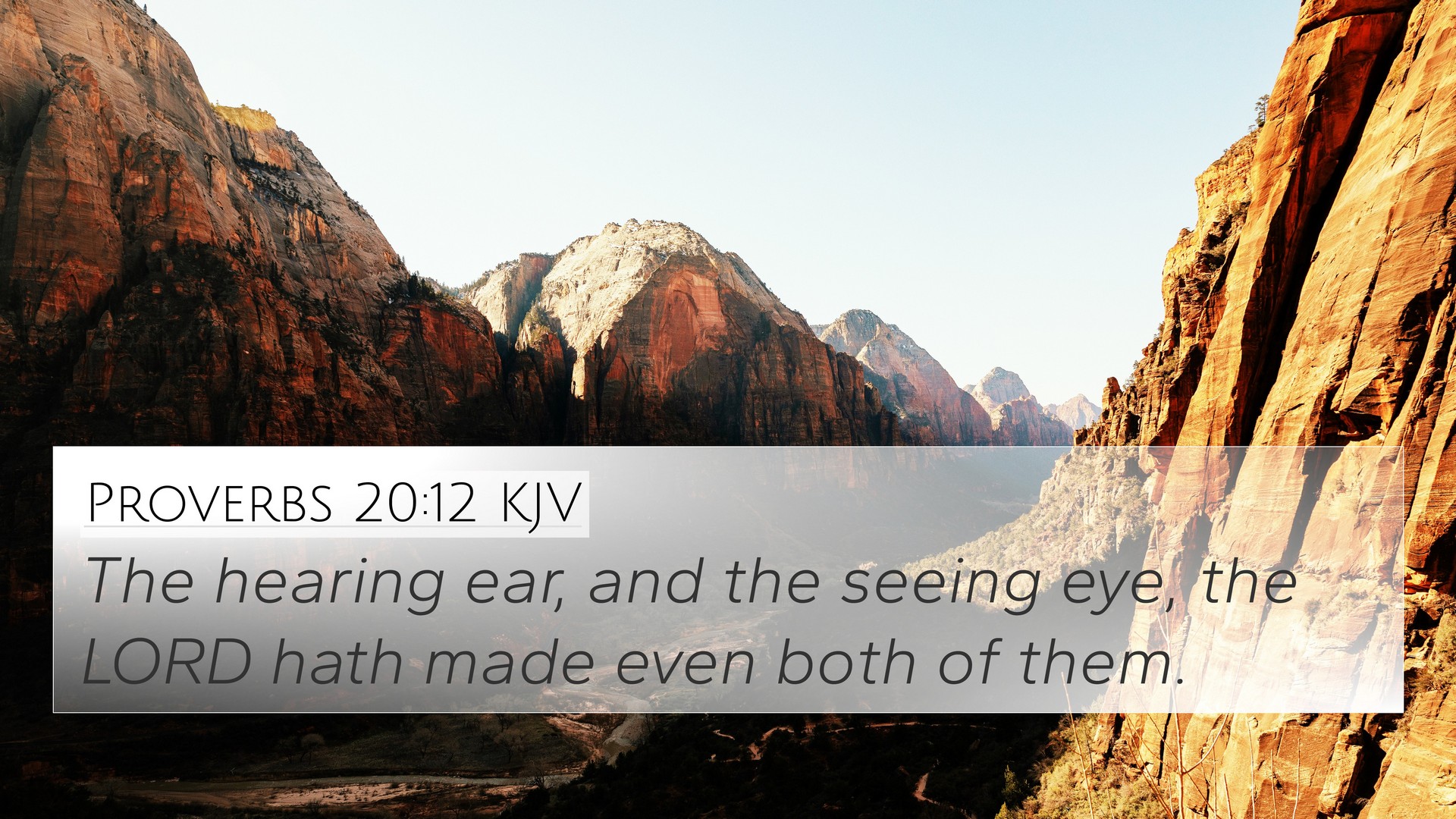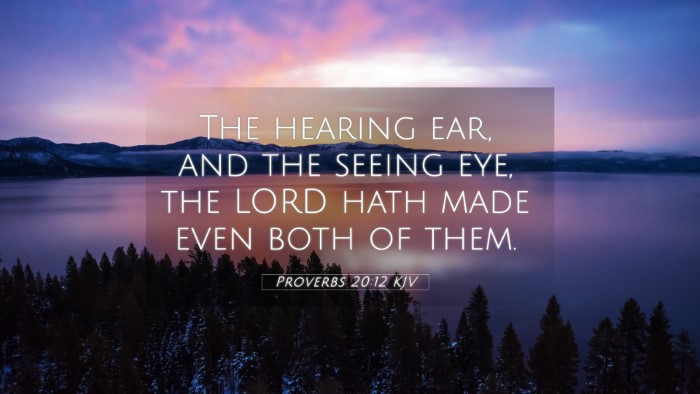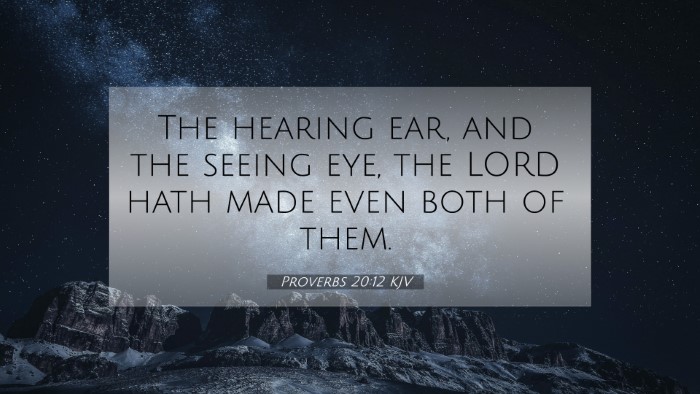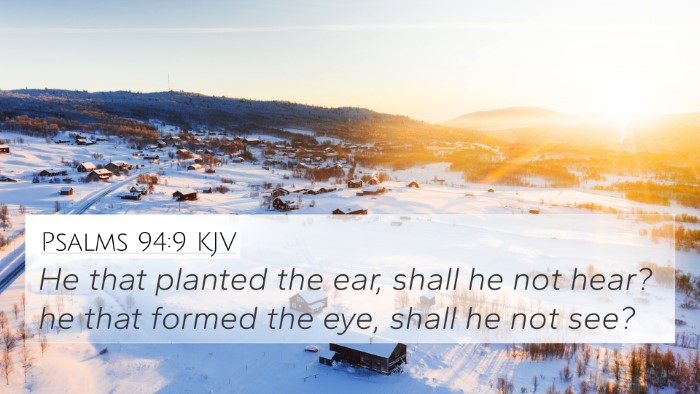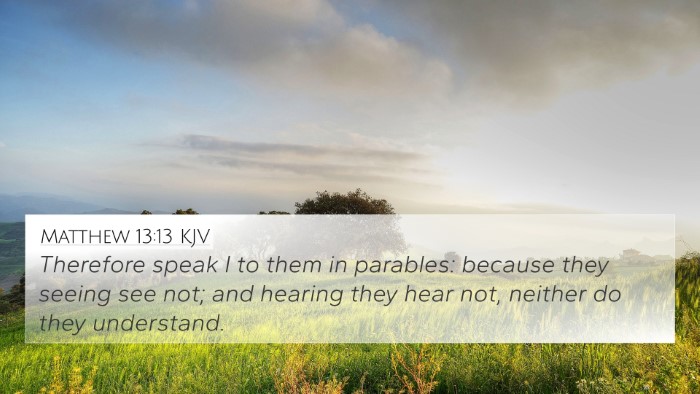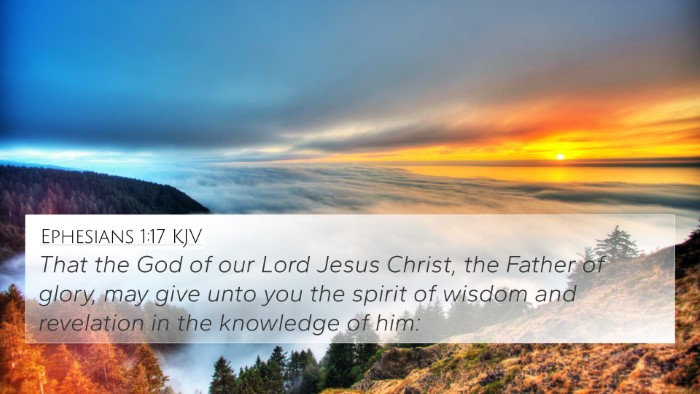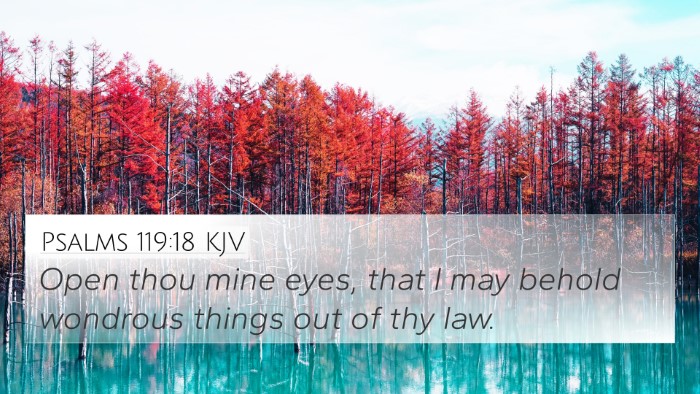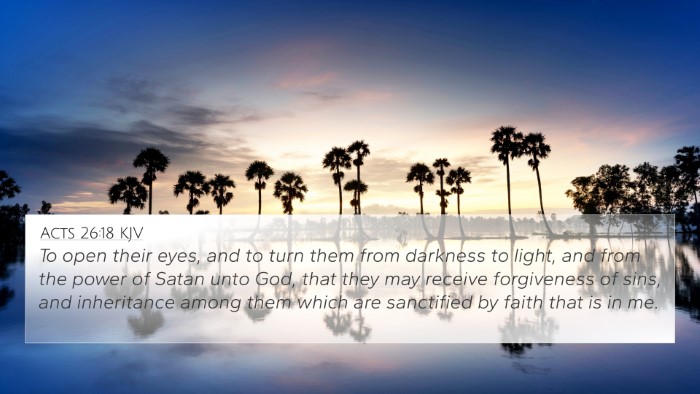Understanding Proverbs 20:12
Proverbs 20:12 states: "The hearing ear and the seeing eye, the Lord has made them both." This verse emphasizes the divine origin of our sensory faculties, suggesting deeper spiritual meanings and connections.
Insights from Public Domain Commentaries
According to Matthew Henry, this verse underscores the truth that God has designed human faculties for a purpose. The hearing ear and the seeing eye are not just physical attributes but are intended to serve in perceiving both the physical and spiritual realms. The ability to hear and see represents understanding and perception, which are critical in discernment and wisdom.
Albert Barnes elaborates on this by indicating that, similar to how God created these senses, He also provides the wisdom needed to use them adequately. This points toward the greater responsibility humans have in utilizing their senses to seek truth and understanding. The verse invites believers to recognize God’s sovereignty in crafting our ability to perceive the world around us.
Adam Clarke notes that this verse also serves as a reminder for individuals to cultivate sensitivity to God’s voice and the experiences in their lives. Both hearing and seeing are metaphorical for spiritual awareness and responsiveness to divine guidance. Thus, the verse can be viewed not just in a physical context but as a call to spiritual alertness and attentiveness.
Cross-References for Proverbs 20:12
This verse finds connections with several other scriptures that enhance its meaning and understanding:
- Job 42:5 - "I had heard of you by the hearing of the ear, but now my eye sees you." - This emphasizes the transition from mere hearing to actual seeing/understanding of God's nature.
- Psalm 94:9 - "He who planted the ear, does he not hear? He who formed the eye, does he not see?" - This reinforces the idea that God, who created our senses, is fully aware and engaged with His creation.
- Isaiah 6:10 - "Make the heart of this people dull, and their ears heavy, and blind their eyes..." - This speaks to the consequences of failing to use our senses to comprehend God's message.
- Acts 28:27 - "For this people's heart has grown dull, and with their ears they can barely hear, and their eyes they have closed..." - Paul echoes the theme of eyes and ears being essential to understanding spiritual truths.
- Proverbs 2:2 - "Making your ear attentive to wisdom and inclining your heart to understanding." - This verse encourages active engagement with our senses in the pursuit of wisdom.
- Matthew 13:16 - "But blessed are your eyes, for they see, and your ears, for they hear." - Jesus highlights the blessedness of spiritual perception that aligns with the themes in Proverbs 20:12.
- Hebrews 5:14 - "But solid food is for the mature, for those who have their powers of discernment trained by constant practice to distinguish good from evil." - This encourages developing our sensory faculties for spiritual maturity and discernment.
Thematic Connections
In analyzing Proverbs 20:12, several themes emerge:
- Creation and Sovereignty - The recognition that God is the creator of our senses instills a sense of reverence and responsibility in their use.
- Spiritual Discernment - The ability to hear and see implies a need for sharpening one's discernment in spiritual matters.
- Responsiveness to God - The verse is a call to be attentive and responsive to God's revelations and truths.
Applications and Reflections
How does Proverbs 20:12 apply to our lives today? The understanding that our hearing and sight are gifts from God encourages us to:
- Seek Understanding - Approach life with the intent to learn and grow in wisdom, using our senses as tools for spiritual insights.
- Engage in Prayer and Reflection - Use our ears and eyes not only for physical experiences but to receive divine instruction and guidance.
- Practice Discernment - Actively distinguish between truth and falsehood in what we hear and see, aiming to align our understanding with God's will.
Conclusion
Proverbs 20:12 invites us to ponder the divine craftsmanship of our sensory faculties, encouraging us to use them wisely. Through the insights gleaned from various commentaries and the interconnectedness of scripture, we find a rich tapestry of meaning that deepens our understanding and appreciation of our capabilities as creations of God. By engaging in comparative Bible verse analysis and cross-referencing biblical texts, we can foster a holistic approach to spiritual growth and understanding.
